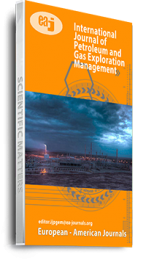Physicochemical properties of artisanal refined gasoline (ARG), PMS and regular automotive gasoline (RAG) sampled from the Eastern Kolo Creek and a tank farm depot in Delta State, Nigeria were investigated. This was to compare the physicochemical properties of the samples with each other and their compliance with American Society for Testing and Materials (ASTM) standards. The finding revealed that the artisanal refined products quality did not comply with ASTM standards. The research octane number, motor octane number, Reid vapor pressure, and specific gravity of RAG were (ASTM) compliant while only the final boiling point of ARG were within ASTM range. Based on the findings, the artisanal refined products might have been poorly refined or adulterated and could constitute problems in automotive engines if used. However, this crude technology can be upgraded and the gasoline quality improved through alkylation, isomerization, and cyclization. Artisanal refiners should be trained to become proficient with the intent of becoming incorporated into the upstream petroleum sector.
Keywords: ASTM, PMS, Petroleum, artisanal, refined AGO

